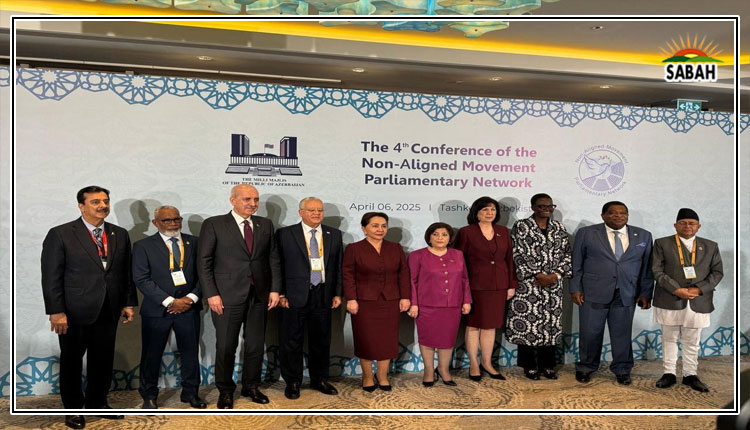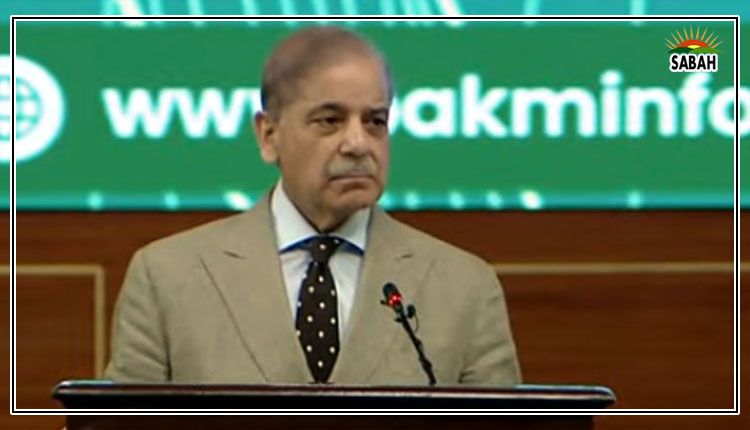Cycle of retaliation …. Maleeha Lodhi
THE spectre of a wider conflict still looms in the Middle East after Israel’s ostensibly ‘limited’ attack on Iran. The escalatory cycle of retaliation pushed the region to the precipice of a regional conflagration. But both countries seemed to pull back from the brink amid global calls for de-escalation.
The latest escalation of violence was sparked by Israel’s April 1 air strike on Iran’s consulate in Damascus which killed seven members of the Revolutionary Guards including a top commander. This raised the stakes in a volatile situation with Iran retaliating with an unprecedented missile and drone attack targeting military installations in Israel. There were no casualties in what was a measured response. Iranian officials said it was not designed to inflict damage but send a message that Israel would have to pay for any action that breached Iran’s red lines. In response, Israel launched an undeclared drone strike at a military target in Isfahan, which also caused no damage. Iranian officials played down the “failed attack”, claiming three drones had been intercepted and indicating they had no intention to retaliate.
This marked the first direct military confrontation between the two adversaries who have long engaged in covert conflict. Israel has carried out assassinations of Iranian nuclear scientists, sabotage and strikes on Iranian assets in third countries while Iran-backed armed groups have been firing rockets across Israel’s border, although there is little equivalence between the two. With this conflict out of the shadows, the rules of the game have changed in the Middle East.
Both countries have crossed each other’s red lines. Iran’s retaliatory action sought to establish a new level of deterrence aimed at preventing more Israeli attacks inside Iran and on Iranian assets elsewhere. Tehran had previously never directly responded to such attacks by striking Israel from Iranian soil. This changed equation prompted the leader of Israel’s opposition to claim that his country’s deterrence policy had been damaged. Israel’s counterstrike on Iran, however small, sought to limit that damage and restore deterrence.
Danger of regional conflict will not recede until the war in Gaza is ended.
Condemnation of Iran’s assault on Israel was fast and furious from the US and other Western countries, who did not bother to similarly denounce the first Israeli strike, which was in violation of international law and the Vienna Convention. But such censure was overshadowed by mounting international concerns that further retaliatory actions would trigger a full-blown regional war. Iran threatened to respond with “greater force” if Israel launched another attack.
All this created an explosive situation. With no country wanting a slide into dangerous escalation a flurry of public calls followed, including from Israel’s closest allies, urging restraint on Tel Aviv. The most significant message came from President Joe Biden who called for restraint but also served notice to Prime Minister Benjamin Netanyahu that if he went ahead with military action the US would not be part of it. Anxious Arab countries signalled they would not allow US military bases on their soil to be used in any attack on Iran. American officials repeatedly declared, “We don’t want to see a wider regional war.” Public opinion in America is strongly averse to involvement in a faraway, foreign war. This is also evident from the lack of public interest and waning political support for the Ukraine conflict. With a looming election, this poses obvious political risks for Biden.
Meanwhile, the UN Security Council met in emergency session on April 14 to discuss the situation. The usual divisions were evident, which meant no Council statement was issued. The envoys of Israel and Iran traded threats and heated accusations, with the US representative lashing out at Iran. But Council members were unanimous in calling for restraint. UN Secretary General António Guterres told the meeting the region was on the brink and de-escalation was necessary as there was “a real danger of a devastating full-scale conflict”.
The increasingly unpopular Netanyahu government came under domestic pressure to act, ostensibly to shore up deterrence as well as its own position, with much pressure coming from its far-right members. To discourage Netanyahu from escalatory action and prevent an expansion of the war, the US announced new sanctions against Iran’s drone manufacturers to “degrade its military capacity”. Britain followed suit while the EU is also poised to impose sanctions on Iran.
But these measures and entreaties did not dissuade the Israeli leadership from launching a military strike against Iran, although it neither confirmed nor denied it did this. US urgings may have persuaded Tel Aviv to moderate its retaliatory action. Israel maintained deniability so as not to provoke another Iranian response. Iranian officials for their part were quoted as saying they saw no need to respond to a “non-attack”. With the score even, there is some hope that the situation will calm down now and tensions will gradually de-escalate.
But the risk of miscalculation remains high in a fraught and volatile environment. Either side can still misread the other’s intentions and the situation can spiral out of control. Speaking in the Security Council, Guterres pointed to this: “One miscalculation, one miscommunication, one mistake, could lead to the unthinkable — a full-scale regional conflict that would be devastating for all involved — and for the rest of the world.”
That danger will not recede so long as the war in Gaza continues. Israel has taken this brutal war into the seventh month, with over 34,000 Palestinians killed and more than 76,000 injured by its relentless military onslaught, which has inflicted untold suffering on the people. It refused to comply with a UNSC resolution calling for a ceasefire during Ramazan, flouting international law. It defied all norms of humanity by blocking humanitarian assistance for desperate people facing famine. Meanwhile, talks in Cairo between Israel and Hamas for a durable ceasefire and release of hostages have ground to a halt. Qatar, which is mediating the talks along with Egypt and the US, is now signalling it may give up its mediatory role.
If the major powers don’t want the ongoing crisis to snowball into a regional conflict, they have to prevail on Israel to end its war in Gaza.
The writer is a former ambassador to the US, UK and UN.
Courtesy Dawn, April 22nd, 2024












